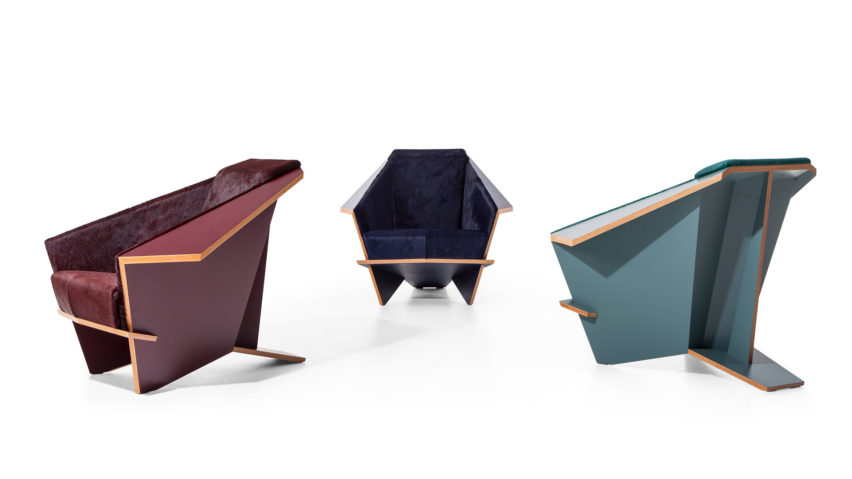Frank Lloyd Wright's geometric Taliesin 1 armchair, which the American architect designed for his own home, is in production for the first time in 28 years.
Lloyd Wright designed the chair in 1949 for the living room of his Taliesin West home and studio in Arizona, where he lived until his death in 1959.
The piece wasn't mass produced until the late 1980s, when Italian furniture brand Cassina first released a version of it, but was discontinued shortly after in 1990 for being "too avant-garde".
However the Taliesin 1 armchair is finally back on the market, reissued by Cassina in partnership with the Frank Lloyd Wright Foundation.
The chair is on sale in its original beech plywood form with a cherry wood veneer, which can be left natural or stained in black oak.
Although he is mostly renowned for his "organic" architecture, Lloyd Wright created numerous furniture designs in the early part of his career.
The complex angled structure of Taliesin 1, which ensures its stability, draws on his modernist architectural style. Constructed from a single piece of folded plywood, the chair has a characteristic "wooden origami" shape.
In its latest iteration, the chair is updated with a slightly more reclined backrest and thicker padding, upholstered in leather or fabric.
The original front feet have been removed to simplify the lines of the chair's geometrical body, placing more emphasis on its folds.
But, in keeping with Lloyd Wright's design, the chair's wooden edges are deliberately left visible.
To celebrate the launch, Cassina has also launched a limited-edition series with a more contemporary spin. This run of 450 chairs features three colours: burgundy, petrol green and dark blue.
Also made from beech plywood, these coloured editions are matt lacquered and upholstered in short-hair leather in the same shade as the lacquer.
Last year marked the 150th anniversary of Frank Lloyd Wright's birthday, sparking a renewed interest in the American architect.
His 1911 Taliesin 4 wooden table lamp was released in 2015 by lighting brand Yamagiwa, ahead of the anniversary, while Swedish brand Offecct recreated the tiles of his historic Ennis House to coincide with the anniversary year.

